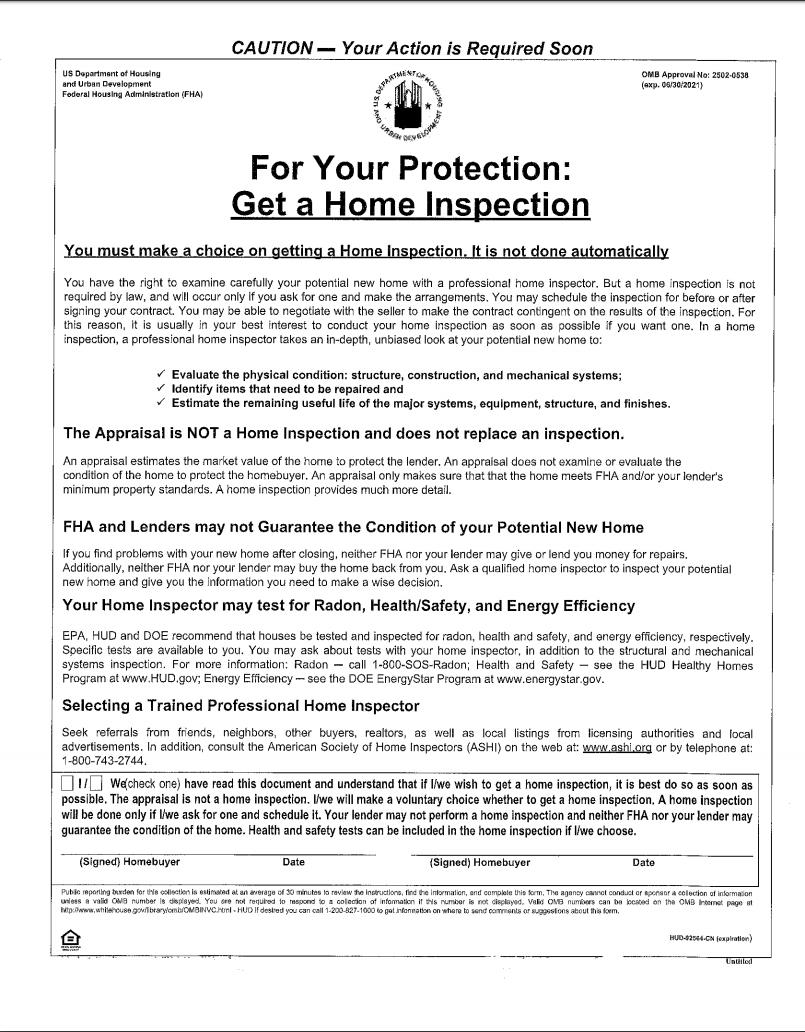Why Should I Have A Home Inspection ?
Why Should I Have A Home Inspection?
The purpose of a home inspection. The home inspection is no place to cut corners. Everyone does themselves a disservice when they shop by price alone, or better yet i hear this all the time i have a family member, friend, or my aunt Tilly knows about construction etc. no, no, no, HIRE A LICENSED TOP-NOTCH HOME INSPECTOR. An inspector will evaluate the structure, construction, and mechanical systems of your would-be home and, if anything is amiss, give you an idea what it will cost to fix. Pick an inspector of your own or check with your friends that had an inspection done on their home to guarantee objectivity. Check the credentials, background, and experience of any prospective inspector. Even though you will receive a written report after the home inspection, you should accompany the home inspector during his rounds don't ask family or friends to cover for you. It’s in your best interest to understand the home, its systems, and potential problems. Your inspector can introduce you to electrical panels and shut-off water valves, and if he spots a problem, he can show you exactly how a system is malfunctioning and what it means. All this info will serve you not only before you buy, but afterward as well. Inspections will take three to four hours for the average-size house. Bring any and all concerns about the property to your inspector before he begins, so he'll keep a sharp lookout for possible problems. If the seller has disclosed damage, give your inspector a heads up about that, too. So, don't be afraid to ask questions. Really get into the home inspection. You and your inspector will be looking at all sorts of things you might have skipped during your showing, like the attic and crawl space, and under the sinks. THE VAST MAJORITY OF ISSUES RAISED DURING A HOME INSPECTION ARE REPAIRABLE
even the best home will receive a laundry list of to-do's and potential problems, and fixing them will be much easier with a hands-on understanding of the issues involved. Consider it free fix-it advice. But if an inspector discovers a major problem with the foundation or roof it may not be a deal killer. In fact, it could be a bargaining chip you can discuss with the sellers before you kill the deal. Work with your real estate attorney to determine the best approach. If your offer was contingent on a successful inspection you have a good basis to request that the current owners make repairs before closing by a licensed professional. You'll want to get this in writing, along with provisions if the sellers fail to fix the problems. The inspector’s report also gives you leverage to negotiate a lower price. Even if you simply use it as a to-do list while you own the home, it’s definitely money well spent. Hopefully, all will go well and your home inspector will say go for it, move in. And yet, some home inspectors don't check everything. conditions such as mold, radon, asbestos, termites, septic systems, oil tank sweep, wells, that require laboratory samples or equipment are the stuff of specialty inspections, which cost extra or must be conducted by other specialists.
Don't forget about disclosure
In some states, sellers are required to disclose any known problems with a home to potential buyers
TIP:
When writing your offer, it is highly recommended that you make the home purchase contingent on the home inspection and appraisal.
DID YOU KNOW?
Did you know the interest rate for a 30-year fixed mortgage hit a record high of 18.63% in 1981?


